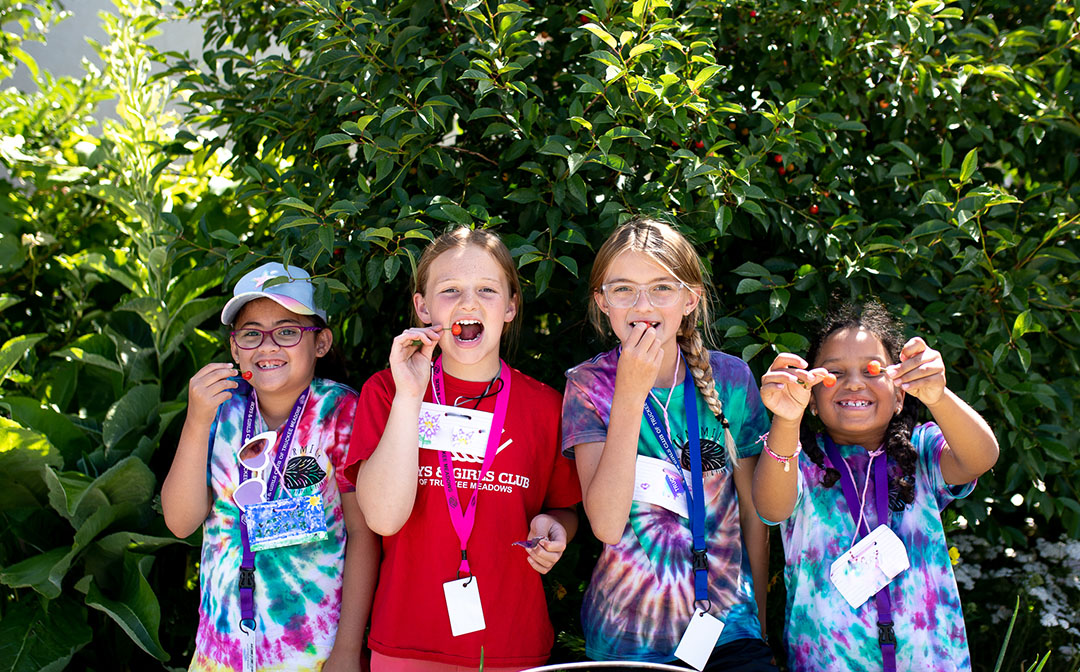FARMily nurtures children in the garden.
Many of us know the healing power of gardening. FARMily, a 501(c)3 nonprofit, is putting that idea to work to help children. Leaders there teach social and emotional learning (frequently called SEL) through gardening.
SEL is “the process through which children and adults understand and manage emotions, set and achieve positive goals, feel and show empathy for others, establish and maintain positive relationships, and make responsible decisions,” explains Rebekah Stetson, FARMily’s founder.
How It Works
In four different garden locations, children enrolled with Boys & Girls Club of Truckee Meadows are taught how to use breath work, mindfulness, and other skills to nurture interpersonal relations. They do this while also learning to plant, nurture, and harvest fresh fruits, vegetables, and herbs; they then harvest these items and learn how to cook them, then take them home to share with their families. All produce — and materials used to grow it — is natural, creating the healthiest and freshest-tasting food possible.
During a typical session, Jen Weeks, FARMily education director, spends time with the children in shaded areas of the gardens, covering a variety of topics delivered through her calm, structured lesson plans. One lesson, titled Seeds of Change, emphasizes the importance of diversity and how students’ own diversity is a strength. This plan begins with a game, a breathing exercise, and a call for the children to identify their expectations of themselves and the lesson. Weeks then dives into activities to support the lesson, such as repeating the affirmation, “I am enough. I am brave. I am a leader.”
Another activity addresses the importance of biodiversity and prompts children to think critically about what they would like to plant that day, the benefits of those seeds and what they will bring, and the differences between the seeds they have chosen to plant and those chosen by other students. They end the lesson with a discussion of what they learned that day.
The Why Behind It
Stetson explains that she began the program for children who “come from socially and economically challenged homes where trauma runs rampant,” to teach healthy behaviors that they will carry with them throughout their lives.
“Our communities are in desperate need of more nurturing adults,” Stetson says. “I truly believe that the greatest gift we can offer to these kids and their families is to teach them how to heal and sustain a good life through social-emotional learning and a reverent and loving connection to themselves, others, their ancestors, and the land, water, and air.”
FARMily would not be successful without the help of its many volunteers and staff members, and the organization’s leaders always welcome more help. Reach out to become a volunteer, donate, or stay in the know about the program by visiting Www.ourfarmily.org, or find Farmily Organic Farms on Facebook and Instagram.
Alina Croft has a degree in journalism from the Reynolds School of Journalism at the University of Nevada, Reno, and is currently working on her master’s degree in media innovation. Croft was able to see the garden’s effect on children in action, and it will forever be a warm memory for her.


